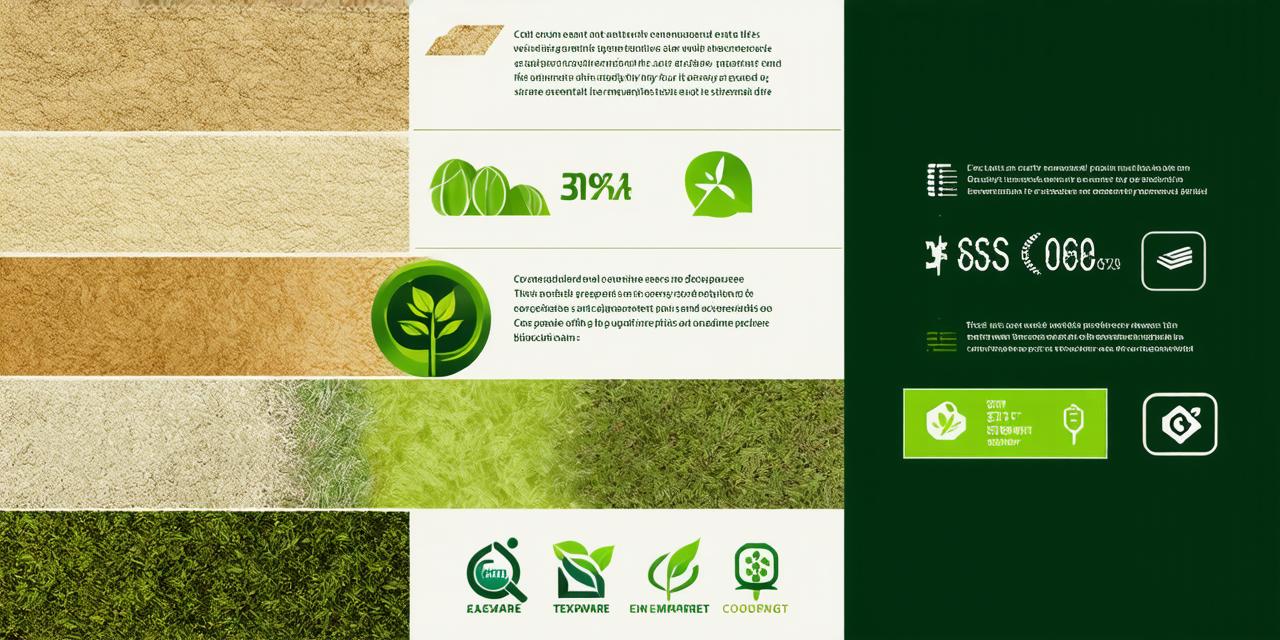How does blockchain support sustainability
Benefits of blockchain in sustainability
Blockchain technology offers several advantages that make it an ideal solution for promoting sustainability. Some of these benefits include:
- Transparency: Blockchain is a decentralized platform that allows all participants to have access to the same information, making it transparent and auditable.
- Traceability: Blockchain’s immutable ledger ensures that all transactions are recorded and can be easily traced. This feature helps in tracking the origin and movement of products, which is critical in ensuring ethical sourcing and minimizing environmental impacts.
- Efficiency: Blockchain eliminates intermediaries, reducing transaction costs and time. This feature enables faster and more efficient supply chains, reducing waste and promoting sustainable practices.
- Security: Blockchain uses cryptography to secure transactions, making it resistant to hacking and fraud. This feature ensures that sensitive information is protected, which is critical in protecting biodiversity and preserving natural resources.
- Scalability: Blockchain technology can scale to accommodate large volumes of data, making it ideal for industries with complex supply chains and high transaction volumes.
Use cases of blockchain in sustainability
Several industries have already started implementing blockchain technology to promote sustainability. Some of the most popular use cases include:
- Supply chain management: Blockchain is being used to trace the origin and movement of products, ensuring ethical sourcing and reducing waste.
- Energy trading: Blockchain technology enables peer-to-peer energy trading, allowing consumers to buy and sell energy directly with each other. This feature promotes renewable energy and reduces reliance on fossil fuels.
- Carbon emissions trading: Blockchain is being used to create a transparent and secure market for carbon emissions trading, which helps in reducing greenhouse gas emissions. For example, the European Union Emissions Trading System uses blockchain technology to facilitate carbon emissions trading.
- Forestry management: Blockchain technology is being used to track the ownership and management of forests, ensuring sustainable forestry practices. This feature promotes biodiversity and reduces deforestation.
- Water management: Blockchain technology is being used to manage water resources, ensuring efficient water usage and reducing waste. For example, the WaterChain project uses blockchain to track water usage in agricultural irrigation systems, reducing water waste and improving crop yields.
Examples of successful blockchain projects promoting sustainability
Several blockchain projects have successfully implemented blockchain technology to promote sustainability. Some examples include:
- Ethereum: Ethereum is a decentralized platform that enables the creation of smart contracts, which can be used for various sustainable applications such as energy trading and carbon emissions trading. Ethereum’s smart contracts are transparent, secure, and auditable, making it an ideal solution for promoting sustainability.
- Hyperledger Fabric: Hyperledger Fabric is a blockchain framework that enables the creation of customizable blockchain solutions for various industries, including sustainability. Hyperledger Fabric’s modular architecture allows stakeholders to create tailored solutions that meet their specific needs.
- IBM Food Trust: IBM Food Trust is a blockchain-based platform that enables stakeholders to trace the origin and movement of food products, ensuring ethical sourcing and reducing waste. IBM Food Trust uses smart contracts to automate transactions and ensure compliance with sustainability standards.
- Trase: Trase is a blockchain-based platform that enables stakeholders to track the supply chains of various industries, including fashion and textiles. Trase’s transparent and auditable ledger helps in identifying sustainability issues such as child labor and environmental pollution, enabling stakeholders to take corrective actions.
- Provenance: Provenance is a blockchain-based platform that enables stakeholders to trace the origin and movement of products, ensuring ethical sourcing and reducing waste. Provenance uses smart contracts to automate transactions and ensure compliance with sustainability standards.

FAQs
Here are some frequently asked questions about blockchain technology and sustainability:
Q: What is blockchain technology?
Blockchain technology is a decentralized database that enables secure and transparent transactions without the need for intermediaries.
Q: How does blockchain support sustainability?
Blockchain supports sustainability by providing transparency, traceability, efficiency, security, and scalability, which are critical features in promoting sustainable practices.
Q: What are some use cases of blockchain in sustainability?
Some use cases of blockchain in sustainability include supply chain management, energy trading, carbon emissions trading, forestry management, and water management.
Q: What are some examples of successful blockchain projects promoting sustainability?
Some examples of successful blockchain projects promoting sustainability include Ethereum, Hyperledger Fabric, IBM Food Trust, Trase, and Provenance.



